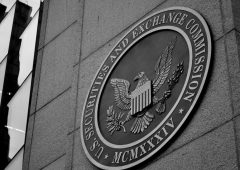South American Country Reiterates Crypto Restrictions Amid Worldcoin Trouble
16.08.2024 11:30 1 min. read
Worldcoin (WLD), the cryptocurrency project co-founded by Sam Altman of OpenAI, has stirred significant attention in Ecuador since its introduction in June.
However, this surge in interest has led local authorities to issue warnings regarding the project’s legitimacy and potential risks.
The Central Bank of Ecuador has recently reiterated its stance against the use of digital assets for transactions. Their statement follows Worldcoin’s launch of its World ID verification service, which became available at several locations in Quito and Guayaquil at the end of June. The service, which involves iris scanning for verification, has attracted many participants eager to earn Worldcoin tokens.
Reports from local media suggest that while Worldcoin has gained traction, some participants may not be fully aware of the implications of sharing their biometric data. Concerns have been raised about the transparency of the process and the potential for exploitation.
In addition, Ecuador’s new Data Protection Superintendency (DPS) has criticized Worldcoin for not informing authorities about its operations, citing a lack of resources to monitor such activities. The Superintendence of Companies (SOC) also cautioned the public about Worldcoin’s unregulated status and advised against providing biometric data for incentives.
The Central Bank of Ecuador emphasized that cryptocurrencies are not recognized as legal tender in the country and warned that transactions involving digital assets would be reported for further investigation.
-
1
Crypto Week Begins: U.S. Congress Advances Key Bills as Trump Pushes for Regulatory Clarity
15.07.2025 7:00 2 min. read -
2
Crypto Tax Policy in Spotlight as House Plans July 16 Hearing
10.07.2025 9:00 2 min. read -
3
Thailand Launches National Crypto Sandbox
17.07.2025 9:03 2 min. read -
4
Key Crypto Events to Watch in the Next Months
20.07.2025 22:00 2 min. read -
5
House Clears Path for Landmark Crypto Bills: Vote Set for Thursday
17.07.2025 9:15 2 min. read
South Korea Urges Asset Managers to Limit Exposure to Crypto Stock Like Coinbase,MicroStrategy
South Korea’s top financial watchdog has issued informal guidance urging local asset managers to scale back their investments in crypto-related stocks, according to a Korean Herald report.
SEC Reverses Bitwise ETF Approval Just Hours After Greenlight
In a surprising move on Tuesday, the U.S. Securities and Exchange Commission (SEC) initially approved Bitwise’s proposal to convert its cryptocurrency index fund into a full-fledged exchange-traded fund (ETF)—only to halt the decision just hours later.
Senate Republicans Unveil Crypto Market Bill to Expand CLARITY Act
Senators Tim Scott, Cynthia Lummis, Bill Hagerty, and Bernie Moreno (R-OH) have released a discussion draft of a new digital asset market structure bill—framed as the Senate counterpart to the CLARITY Act.
Banking Trade Groups Urge OCC to Halt Digital Trust Bank Approvals
Five major banking associations are urging the Office of the Comptroller of the Currency (OCC) to delay approval of new national trust bank charters for digital asset firms, including Ripple, Fidelity Digital Assets, National Digital TR CO, and First National Digital Currency Bank.
-
1
Crypto Week Begins: U.S. Congress Advances Key Bills as Trump Pushes for Regulatory Clarity
15.07.2025 7:00 2 min. read -
2
Crypto Tax Policy in Spotlight as House Plans July 16 Hearing
10.07.2025 9:00 2 min. read -
3
Thailand Launches National Crypto Sandbox
17.07.2025 9:03 2 min. read -
4
Key Crypto Events to Watch in the Next Months
20.07.2025 22:00 2 min. read -
5
House Clears Path for Landmark Crypto Bills: Vote Set for Thursday
17.07.2025 9:15 2 min. read


